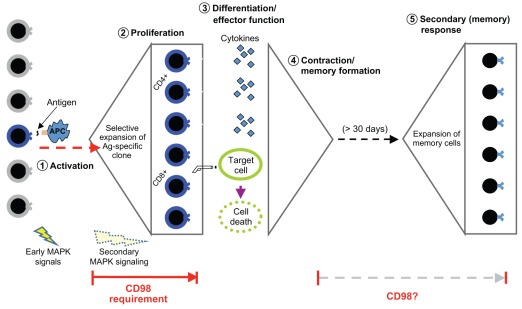Fig. 3.
The role of CD98hc in cell-mediated adaptive immunity. Upon immune challenge, a rare antigen-specific naive T cell (shown in blue) is activated by peptide antigen (Ag) on an antigen-presenting cell (APC) and rapidly proliferates to expand into a large number of antigen-specific effector T cells. After expansion and differentiation, effector CD4+ ‘helper’ cells secrete cytokines to direct the adaptive immune response, and CD8+ cytotoxic ‘killer’ T cells kill infected target cells. After pathogen clearance, effector T cells die to leave only a few ‘memory’ T cells that are primed for a rapid secondary response. Following secondary exposure to the same antigen, memory T cells re-expand to eliminate the pathogen. CD98hc is required for rapid clonal expansion, but appears dispensable for antigen recognition, activation and effector functions. Whether or not CD98hc is necessary for secondary expansion is an open question.

